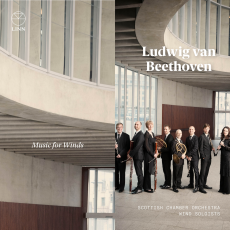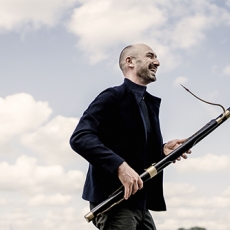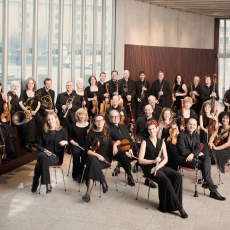SCO Winds - Beethoven: Music for Winds - Fanfare
All of Beethoven’s wind chamber music was written in the 1790s; the misleadingly high opus numbers of the Sextet and Octet are explained by the fact that they were published much later. The Sextet for pairs of clarinets, horns, and bassoons is best-known, in America at least, in an anonymous arrangement for wind quintet; the little March is written for the same combination of instruments. The Octet, op. 103, and the Rondino are for the familiar Harmoniemusik ensemble composed of pairs of oboes, clarinets, horns, and bassoons, following the example of Mozart in his Serenades, K 375 and 388. The Octet also exists in Beethoven’s transcription for string quintet, op. 4. The three duos for clarinet and bassoon long attributed to Beethoven, of which the first, in C Major, is included here, are now generally considered spurious.
The Scottish Chamber Orchestra Wind Soloists is an unusual hybrid ensemble: The woodwind players use modern instruments, while the horns are natural. The resulting sound is unique. In the Duo, principal clarinetist Maximiliano Martín sounds like he is playing on a C clarinet.
The Sextet is given a spirited performance, with notably brisk tempos: Some runs in the first movement are approximated, but intonation is spot-on. The Octet is for me the most musically satisfying of the pieces given here: It features a Menuetto—a scherzo all but in name—that mixes the major and minor modes in a manner atypical for Classical wind music, and a witty Presto. In the first movement there are some impressive horn arpeggios. The Rondino, which was probably originally intended as the fourth movement of the Octet, likewise features the horns prominently.




